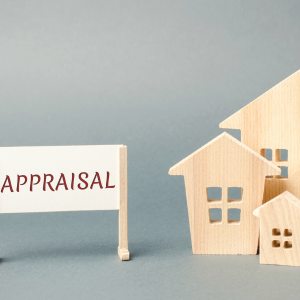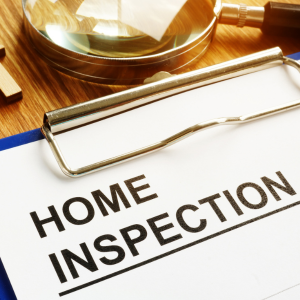
Who Covers the Costs of Appraisals and Inspections in Texas? A Guide to Understanding Appraisals, Inspections, and Payment Responsibilities
Understanding who is financially responsible for appraisals and inspections is critical when navigating Texas’ real estate market. As potential buyers and sellers work to complete transactions smoothly, it’s crucial to understand who typically pays for these necessary services. This guide delves into the purpose and process of appraisals and inspections, revealing who typically foots the bill in various scenarios. Whether buying, selling, or simply looking for information, understanding these costs will provide deeper insights and enable you to make informed decisions in your Texas real estate journey.
What is a Home Appraisal, and How Does It Affect the Property Rate?

Buyers and sellers in the real estate market must understand the impact of home appraisals on property values. Expert home appraisals are essential to buying and selling homes. It impacts property value and buyers’ willingness to pay. When writing a report, the appraiser considers location, condition, and neighboring property sales prices. This report ensures the house is priced fairly using market standards.
Depending on its condition and value, this can boost or lower a property’s market position. To reflect market trends, appraisers compare the house to nearby comparables. This influences potential buyers and sellers. A detailed appraisal report helps sellers achieve top dollar, and buyers negotiate a fair price by revealing how the house performs in the busy real estate market.
Additionally, appraisals affect mortgage approval and purchase prices. Lenders require appraisals because they don’t want to loan more than the house is worth. Remember that markets change, so a property’s value may change. This means the appraisal reflects its value at a given time. Knowledge of home appraisals and appraisal reports can help you navigate the real estate market and make smart property decisions.
Factors Affecting the Cost of a Home Appraisal in Texas
Several factors affect Texas home appraisal costs. Appraisal costs depend on property location. Texas appraisers may charge more for urban properties. The property’s size and complexity also affect cost. As appraisers spend more time and money evaluating larger, more complex homes, appraisal costs rise.
Costs also depend on local appraiser availability. Due to a shortage of appraisers in a Texas region, demand may jack up appraisal costs. Whether the appraisal is for purchase, refinance, or a unique need can affect the cost because some require more detailed analysis and reporting. Homeowners should assess seasonal market trends that affect appraisal costs.
When real estate activity is high, appraisers are busier, which may raise appraisal costs. Remember, special requirements, like rush appraisals, may incur additional costs. Texas appraiser selection affects appraisal costs.
Looking around for the best appraiser is important because they have different pricing models. An appraisal is a worthwhile investment for accurate property valuation. In Texas, homeowners may pay for appraisals during the transaction process. Understanding these factors can help manage expectations and determine potential expenses.
Understanding Home Inspection Vs. Home Appraisal

Before buying a home in Texas, it’s important to understand terms like home inspection and appraisal. Although both processes are essential to real estate transactions, home inspections and appraisals serve different purposes and require different roles. A home inspection looks for structural damage or faulty systems. The inspector checks the roof, plumbing, and electrical systems to give buyers an idea of the home’s condition. However, a home appraisal determines its market value. Lenders need this appraiser process to ensure the property’s value justifies the loan.
The inspector walks through the home and notes any issues or maintenance needs while the appraiser considers location, square footage, and recent sales of similar homes. Understanding these processes helps buyers make informed decisions about repairs and property value. While inspectors and appraisers may seem similar, each has unique expertise crucial during different home-buying stages.
In Texas, knowing who pays for evaluations is crucial. In most cases, the buyer pays for the home inspection and appraisal. However, negotiations can yield various agreements. Knowing who pays makes real estate transactions easier. Hiring Texas real estate experts for inspections and appraisals is crucial to accuracy. Inspections identify property issues, but home appraisals provide crucial data that affect loan terms and long-term buyer decisions. Both methods guarantee knowledgeable real estate investments.
What Issues Are Found in Home Inspections and Appraisals?
Knowledge of common issues during home inspections and appraisals in Texas is essential. Inspections often reveal issues ranging from minor cosmetic flaws to major structural defects. Inspecting your home can reveal issues like outdated wiring, plumbing leaks, and roofing damage, significantly affecting its value. A property’s market value is estimated in a detailed appraisal report.
The appraiser may lower the value if they find unpermitted renovations or title issues. Thorough data analysis and physical inspection are necessary for accurate appraisal reports. Additional data may be requested to confirm the findings. Inspection reports aid buyers and sellers in negotiations. In Texas, inspection reports can prompt repairs or price changes.
Thus, buyers request inspections to identify potential issues. Sellers can streamline the process by resolving as many issues as possible before listing. Recognizing the objective differences between inspections and appraisals is crucial for buyers in today’s competitive housing market.
Addressing issues early in the process, such as with an appraiser or thorough home inspections, can prevent future complications. In conclusion, these reports provide essential data for real estate decisions. Addressing common home inspection issues and comprehending appraisal reports aids in informed decision-making, promoting clarity and confidence among all parties involved.
Who Pays for a Home Appraisal and Inspection in Texas?

Identifying who pays for home appraisals and inspections is crucial in Texas real estate transactions. Typically, the buyer pays these costs to evaluate the property’s value and condition before purchasing. An appraisal measures the home’s market value, ensuring fair pricing for buyers and lenders. Texas property appraisals typically cost $300-$500, but fees vary based on complexity and location. In Texas, inspection costs range from $300 to $450, depending on home size and specialty evaluations like termite or foundation inspections.
When negotiating, parties often discuss who will cover these costs. Sellers may offer to cover appraisal or inspection costs to attract buyers. In competitive markets, sellers may cover costs to get a faster deal. Buyers who desire the property tend to accept responsibility for expenses without negotiation. Remember that unexpected issues during a home inspection may require additional negotiations. In case of issues, the buyer may request the seller to fix them or lower the price to cover future costs.
Therefore, while buyers typically cover appraisal and inspection costs, each Texas real estate transaction may have unique outcomes. Paying is often negotiated between buyer and seller. When planning a purchase, consider these costs and discuss payment during the offer stage. Ensures smooth transactions in Texas, whether buying or selling.
Who Pays the Cost of Home Inspections?

Home inspection cost allocation is crucial in Texas during the purchasing process. The buyer typically covers the home inspection to ensure the property is in good condition before closing. Protecting the buyer’s interests is important so they don’t have to pay for unexpected property conditions after the transaction. If issues are found during initial evaluations, negotiations may result in the seller paying for the inspection. Sellers may pay to improve their property in competitive markets. The property’s size, location, and inspectors’ expertise affect home inspection costs. Inspections in TX typically cost $300 to $500, but prices vary.
Researching and hiring qualified and experienced inspectors can greatly impact the buying decision. Home inspections cover structural components, electrical systems, plumbing, and more to find hidden issues that could cost the buyer a lot in repairs. The buyer should check reviews and recommendations for Texas’ dozens of inspectors. This may seem like an extra cost, but home inspections are essential to the buying process. Before repairs, a thorough inspection can save thousands. A thorough inspection is essential if paying out of pocket or negotiating with the seller. In the TX real estate market, knowing who pays, the importance of inspections, and how these costs affect the final price is crucial.
Importance of Home Appraisals and Inspections in Real Estate Transactions
Home appraisals and inspections are crucial in the competitive real estate market. Purchasers and sellers use home appraisals to determine fair market value. Accurate appraisals ensure that sales prices match market trends, helping sellers set competitive prices and buyers avoid overpaying. Detailed home inspections reveal property issues that may affect sales.
Such inspections help buyers make informed decisions, easing transactions. Real estate agents must understand appraisals and home inspections to help clients buy or sell. Using these crucial assessments helps clients negotiate better terms. Accurate appraisals can improve refinancing terms by establishing a property’s value.
Sellers can price their homes competitively and attract buyers by knowing their market value. Additionally, inspections can identify safety hazards and necessary repairs, significantly impacting purchasing or refinancing decisions. Before closing, buyers can negotiate with sellers to fix these issues. Depending on region and agreement, both buyer and seller may have to pay appraisal and inspection fees.
Both parties often negotiate who pays these fees at the start of a transaction in Texas. A real estate agent plays a crucial role in navigating these aspects during paperwork and discussions. This highlights the significance of home appraisals and inspections in real estate transactions, enabling buyers and sellers to succeed in the ever-changing market.
The Role of a Real Estate Agent in Appraisals and Inspections

The role of a real estate agent is crucial in the appraisal and inspection process for home buyers and sellers in Texas. Market experts and real estate agents help clients understand appraisals and inspections. Agents coordinate buyers, sellers, appraisers, and inspectors, ensuring a smooth process.
Appraisers determine the property’s market value, which can seriously impact negotiations. A knowledgeable real estate agent can interpret appraisals to ensure fairness for clients. Agents help clarify who pays for the appraisal—the buyer or seller—based on the contract.
Realtors recommend experienced home inspectors who provide detailed property condition reports. Knowing market dynamics helps real estate agents navigate inspection reports and negotiate repairs. After these inspections, the inspector may recommend more bargaining before closing a deal. Using their network and market knowledge, real estate agents can advise on whether to proceed or adjust the offer after inspection.
Texas real estate agents are essential because their experience in these areas benefits buyers and sellers. An experienced real estate agent makes the process transparent and beneficial for all parties, from determining who pays for what to understanding appraisal and inspection results. Their vital role greatly affects the home buying and selling process.
How to Find a Qualified Appraiser in Texas

Choosing a qualified Texas home appraiser requires following specific steps to ensure accuracy and reliability. Online research potential appraisers first. Many websites offer detailed reviews and ratings for Texas appraisers, assisting in choosing one that meets your property appraisal standards. Most mortgage lenders require Texas-licensed and certified appraisers. You can also ask family members who have had Texas appraisals for recommendations.
Verifying the appraiser’s experience with your property type is crucial. Whether it’s a family home or an investment property, the appraiser’s experience with similar properties can greatly affect the appraisal. Contacting your real estate agent can reveal which appraisers they’ve worked with and recommend for property appraisals.
Also, consider the appraisal service’s scope. Some appraisers provide detailed reports and analyses, which can help with mortgage approval. Talk to your appraiser about your needs and expectations. Discuss any unique aspects of your family property that may affect its value. After this conversation, the appraiser will be informed and prepared to provide a thorough Texas home appraisal.
Remember to compare prices. Understanding that appraisal fees vary can help you choose a Texas property appraiser. A thorough and qualified appraiser is needed to determine your property’s market value and meet mortgage requirements. It takes time to find the right appraiser, but a good one will boost your Texas real estate efforts.
Can You Get a Free Home Appraisal and Reduce Costs?
Knowing about free home appraisals can significantly reduce costs when navigating the real estate market. A complimentary appraisal for selling or refinancing is rare, but some mortgage lenders offer promotional offers. These offers are part of a larger customer acquisition strategy in competitive markets. Even if you can’t get a free home appraisal, there are ways to cut costs. Ask your real estate agent about discounts and tips for working with the right professionals to reduce home appraisal costs.
You must consider the appraiser’s role in this process. An appraiser’s detailed report affects sales and refinancing. This report is usually an upfront cost that depends on property type, size, and location. When preparing your home for sale, inspections may reveal repairs or improvements that can boost appraisal value but also increase costs.
You can also cut costs by refinancing. Refinancing can lower interest rates and mortgage payments if the market is good. Talk to your mortgage officer about all refinancing options, including appraisal discounts.
Understanding these processes can reduce costs and streamline home sales. Your home appraisal affects the sales price and how much you can borrow to refinance. Being proactive and informed can reduce appraisal and inspection costs on your real estate journey. Discovering a qualified appraiser who can provide a thorough report is crucial to this process.
The Importance of Knowing Who Covers Appraisal and Inspection Costs in Texas
Knowing who pays for appraisal and inspection costs in Texas can significantly impact the home-buying or selling process. Buyers typically pay for these services to protect their investment; however, sellers may agree to cover these costs through negotiation in a competitive market. To effectively manage these costs, you must maintain open lines of communication with your real estate agent. Understanding your financial responsibilities, whether buying or selling, can result in a smoother transaction and more informed real estate decisions.
This information applies to Texas and its cities, including Irving, Plano, and Sherman. For assistance or questions, please call us at (833) 962-2274. You can also visit our website at Hilltop Home Buyer for more details.


